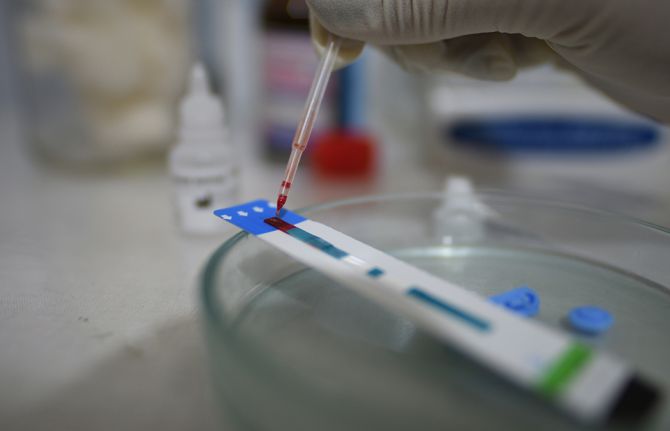

Press Statement
Identification of fast-spreading HIV variant provides evidence of urgency to halt the pandemic and reach all with testing and treatment
07 February 2022 07 February 2022Around 10 million people living with HIV are still not on antiretroviral therapy
GENEVA, 7 February 2022—Newly published research from the Netherlands has revealed the existence of a more transmissible and damaging variant of HIV. People living with the newly revealed HIV subtype experience double the rate of immune system decline (CD4 count), have higher HIV viral loads (amount of virus in the blood) and are vulnerable to developing AIDS two to three times faster after diagnosis than if they were living with other strains of the virus. The study, led by researchers from the University of Oxford’s Big Data Institute, was the first to discover this highly virulent variant of the subtype-B of HIV. The study also revealed that the variant has been circulating in the Netherlands for years and remains receptive to HIV treatment.
The HIV pandemic continues to take a life every minute and scientists have long worried about the evolution of new, more transmissible, variants of HIV. This newly identified variant does not represent a major public health threat but underscores the urgency of speeding up efforts to halt the HIV pandemic.
“Ten million people living with HIV worldwide are not yet on treatment, fuelling the continued spread of the virus and potential for further variants,” said Eamonn Murphy, UNAIDS Deputy Executive Director, Programme, a.i. “We urgently need to deploy cutting-edge medical innovations in ways that reach the communities most in need. Whether it’s HIV treatment or COVID-19 vaccines, inequalities in access are perpetuating pandemics in ways that harm us all.”
HIV remains the deadliest pandemic of our time—an estimated 79 million people have become infected with the virus, for which there is still no vaccine and no cure. Some 36 million people have died from AIDS-related illnesses since the start of the pandemic and 1.5 million people were newly infected with HIV in 2020. Of the 38 million people living with HIV today, 28 million are on life-saving antiretroviral therapy, keeping them alive and well and preventing transmission of the virus.
UNAIDS
The Joint United Nations Programme on HIV/AIDS (UNAIDS) leads and inspires the world to achieve its shared vision of zero new HIV infections, zero discrimination and zero AIDS-related deaths. UNAIDS unites the efforts of 11 UN organizations—UNHCR, UNICEF, WFP, UNDP, UNFPA, UNODC, UN Women, ILO, UNESCO, WHO and the World Bank—and works closely with global and national partners towards ending the AIDS epidemic by 2030 as part of the Sustainable Development Goals. Learn more at unaids.org and connect with us on Facebook, Twitter, Instagram and YouTube.
Contact
UNAIDS GenevaSophie Barton-Knott
tel. +41 79 514 68 96
bartonknotts@unaids.org
UNAIDS Media
communications@unaids.org
